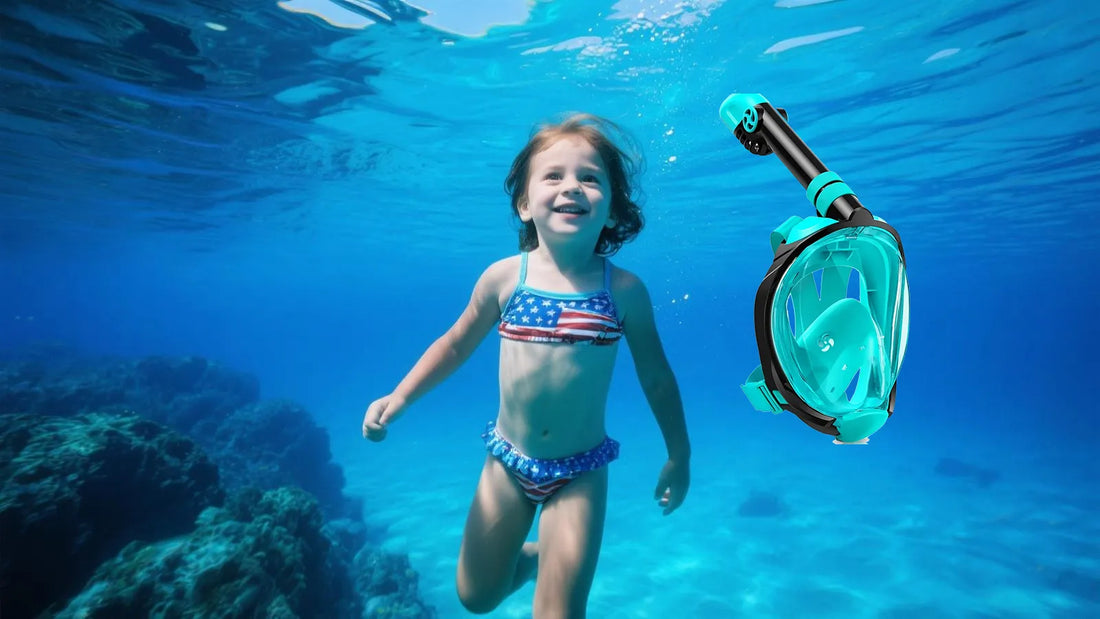Snorkeling is an exhilarating activity that allows people of all ages to explore the underwater world. But how old do you have to be to snorkel? This question is common among parents and beginners who want to ensure a safe and enjoyable experience. The answer isn't as straightforward as you might think, as it depends on several factors, including physical ability, comfort in water, and safety precautions. Let's dive into the details to help you understand the age requirements and essential tips for snorkeling.
Understanding the Basics of Snorkeling
Snorkeling involves swimming on the surface of the water while using a snorkel, mask, and fins to observe marine life. It's a low-impact activity that doesn't require extensive training, making it accessible to many people. However, certain skills and precautions are necessary to ensure safety and enjoyment.
Age Requirements for Snorkeling
There is no strict age limit for snorkeling, but most experts recommend that children be at least 5 or 6 years old. At this age, kids typically have the physical strength, coordination, and attention span needed to use snorkeling gear and follow safety instructions. Younger children may struggle with the equipment or feel uncomfortable in the water, increasing the risk of accidents.
That said, some children as young as 3 or 4 can snorkel with proper supervision and support. It's essential to assess your child's comfort level in the water and their ability to follow directions before introducing them to snorkeling.
Safety Considerations for Young Snorkelers
Safety is paramount when introducing children to snorkeling. Here are some key considerations:
- Supervision: Always supervise young snorkelers closely, even if they are confident swimmers. An adult should be within arm's reach at all times.
- Proper Gear: Ensure the snorkel, mask, and fins fit properly. Ill-fitting gear can cause discomfort and increase the risk of accidents.
- Shallow Water: Start in shallow, calm waters where the child can stand if needed. This helps build confidence and reduces the risk of panic.
- Sun Protection: Use sunscreen, rash guards, and hats to protect young skin from harmful UV rays.
- Hydration and Breaks: Encourage regular breaks and provide plenty of water to prevent dehydration.
Building Confidence in Young Snorkelers
Introducing children to snorkeling requires patience and encouragement. Start by letting them practice in a pool or shallow water to get used to the gear. Teach them how to breathe through the snorkel and clear water from the tube. Gradually increase the depth and duration of their snorkeling sessions as they become more comfortable.
Positive reinforcement is crucial. Celebrate their progress and make the experience fun by pointing out interesting marine life or playing games in the water.
Snorkeling for Older Adults
Snorkeling isn't just for kids; it's a fantastic activity for older adults as well. It's low-impact, making it suitable for those with joint issues or limited mobility. However, older adults should take extra precautions, such as:
- Health Check: Consult a doctor before snorkeling, especially if you have underlying health conditions.
- Proper Gear: Choose lightweight and easy-to-use equipment to reduce strain.
- Buddy System: Always snorkel with a partner for added safety.
- Pacing: Take breaks as needed and avoid overexertion.
Choosing the Right Location
The location plays a significant role in ensuring a safe and enjoyable snorkeling experience. Look for calm, clear waters with minimal currents and abundant marine life. Many popular snorkeling destinations offer guided tours, which are ideal for beginners and families. Research the area beforehand to ensure it's suitable for your group's skill level.
Essential Snorkeling Tips for All Ages
Whether you're a beginner or an experienced snorkeler, these tips will help you make the most of your underwater adventure:
- Practice Breathing: Get comfortable breathing through the snorkel before entering the water.
- Stay Relaxed: Keep your movements slow and steady to conserve energy and avoid scaring marine life.
- Respect Marine Life: Observe without touching or disturbing the underwater environment.
- Know Your Limits: Don't push yourself beyond your comfort level or physical capabilities.
Common Mistakes to Avoid
Even experienced snorkelers can make mistakes that compromise their safety or enjoyment. Here are some common pitfalls to watch out for:
- Improper Gear Fit: Ill-fitting gear can cause leaks, discomfort, and difficulty breathing.
- Ignoring Weather Conditions: Avoid snorkeling in rough seas, strong currents, or poor visibility.
- Overestimating Abilities: Don't venture too far from shore or into deep water if you're not confident in your skills.
- Neglecting Safety Precautions: Always follow safety guidelines and listen to your guide or instructor.
The Benefits of Snorkeling
Snorkeling offers numerous physical, mental, and emotional benefits. It's a great way to stay active, reduce stress, and connect with nature. For children, it can foster a love for the ocean and marine conservation. For older adults, it provides a gentle form of exercise and an opportunity to explore new environments.
Additionally, snorkeling is a social activity that can strengthen bonds with family and friends. Sharing the experience of discovering vibrant coral reefs and colorful fish creates lasting memories.
Preparing for Your First Snorkeling Adventure
If you're planning your first snorkeling trip, preparation is key. Here's a checklist to help you get started:
- Research Destinations: Choose a location that matches your skill level and interests.
- Rent or Buy Gear: Decide whether to rent equipment or invest in your own.
- Take a Lesson: Consider taking a beginner's class to learn the basics and build confidence.
- Pack Essentials: Bring sunscreen, water, snacks, and a waterproof camera.
- Check Weather Conditions: Ensure the forecast is favorable for snorkeling.
Snorkeling is a rewarding activity that can be enjoyed by people of all ages. By understanding the age requirements, safety considerations, and essential tips, you can ensure a fun and memorable experience for everyone involved. So, grab your gear, dive in, and discover the wonders of the underwater world!

